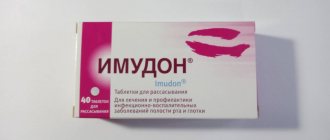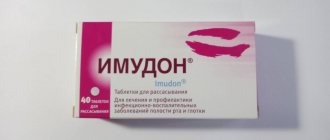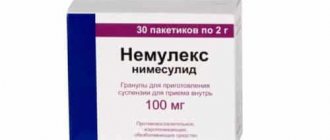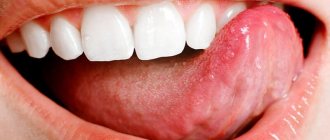With gastroenterological diseases, stomach pain and belching of air are common. Pressing, incessant nausea and the release of gases accumulating in the gastrointestinal tract and esophagus are not only a sign of a serious illness, but also an unaesthetic symptom that causes inconvenience to the patient, to combat which it is necessary to establish the exact root cause of the disease.
IT IS IMPORTANT TO KNOW! Even “advanced” ulcers or gastritis can be cured at home, without surgery or hospitals. Just read what Galina Savina says and read the recommendation.
Causes and symptoms
When a patient feels a dull pain in the abdomen after eating, gases arise and he constantly wants to burp, he thinks about the root causes of the unpleasant manifestations. Empty belching of air can be a symptom of an emerging or progressive gastrointestinal disease or occur for reasons that have no clinical manifestations and are related to a person’s daily lifestyle. So, the reason for belching may lie in the following:
Very important! Savina G.: “I can recommend only one remedy for the quick treatment of ulcers and gastritis” read more.
- frequent smoking;
- an excess in the diet of foods that provoke a lot of gastric gases - beans, sauerkraut, peas;
- drinking carbonated water and drinks;
- non-observance of an hour's pause between meals and exercise;
- disruption of the process of food absorption - swallowing air, not chewing food and swallowing large pieces.
When these causes are excluded and severe belching through the mouth is accompanied by other alarming symptoms, such as vomiting, excessive sweating, diarrhea, acute stomach pain, you should consult a doctor, since one of the serious diseases may develop, which can only be diagnosed by tests and a comprehensive gastroenterological examination .
Esophagitis of the esophagus
Constant belching of air is observed with chronic inflammation of the esophagus and is accompanied by a burning sensation in the pit of the stomach, which goes away after taking gastrointestinal preparations that envelop the mucous membrane. Both narrowing of the esophageal tube and erosion of the walls cause pain and inconvenience. The process creates a gas bubble that comes out of the mouth during yawning and chest movement. Endless dry belching in such cases is a reason to go to the hospital so that esophagitis does not cause complications.
THIS IS REALLY IMPORTANT! Right now you can find out a cheap way to get rid of stomach pain. FIND OUT >>
Gastric ulcer
The most dangerous disease that can lead to cancer and death. An adult suffering from an ulcer has a stomach ache and belches through the mouth already at the initial stage of the disease. With the chronic nature of the disease, the stomach seems to ache, the person regularly vomits, vomiting periodically occurs, and air belching is often accompanied by the release of acid.
Chronic pancreatitis
Frequent belching after eating and a burning sensation in the stomach are signs of pancreatic dysfunction. In case of acute pain, people call an ambulance, especially at night, since the aggravation of the disease occurs after a heavy feast and consumption of non-dietary foods, drinking coffee, alcohol and marinades. An air lump coming out of the mouth with pancreatitis is bitter.
Other reasons
Air in the stomach, which then regurgitates and torments the patient with hiccups, occurs with gastritis. The air lump comes with the smell of rotten food and is accompanied by heartburn, bloating, excessive salivation and flatulence. In the initial stages of the disease, treatment with diet is effective; acute stages require drug therapy.
Constipation in a child, children
Constipation is a long-term (more than 48 hours) delay in bowel movement, accompanied by difficulty in defecation, as well as a small amount (less than 100 g per day) or increased hardness of feces, and a feeling of incomplete bowel movement. Constipation can be organic and functional. The most common causes of constipation are:
1) nutritional defects, malnutrition, monotonous milk nutrition, lack of products in the diet of older children that provide a significant amount of food waste; 2) anatomical defects in the development of the intestine, malformations of the anorectal zone; 3) atonic intestinal conditions; 4) reflex constipation with cracks and abrasions of the anus and rectum.
If children do not have stool for several days from birth, one should think about congenital anomalies of intestinal development. In older children, constipation is observed with hypothyroidism, colitis, dolichocolon, megacolon. Mechanical obstacles and medications (atropine-like, catecholamines) lead to constipation.
Among functional constipation, spastic or hypokinetic constipation is most common. As a result of the absorption of rotting products from the intestines during chronic constipation, children’s well-being is disrupted: increased fatigue, headaches appear, appetite decreases, and sleep deteriorates.
Conditioned reflex constipation appears in a child as a result of a change in the usual lifestyle: with the start of attending kindergarten, school, when the usual time of defecation shifts.
In the occurrence of psychogenic constipation, factors such as prolonged and frequent stressful situations in the family, school, excessive emotional and mental stress with simultaneous physical inactivity are important.
Preventive actions
To prevent the occurrence of the phenomenon in question, it is recommended:
- To ensure the normal functioning of the gastrointestinal tract, it is recommended to drink a glass of clean water in the morning. This manipulation will speed up the functioning of the digestive system;
- do not drink liquid while eating;
- It is not recommended to abuse drinks with gases;
- you need to eat at the same time, dividing the diet into 6 times a day;
- It is not recommended to eat 2 times a day and in large portions;
- all foods are chewed thoroughly and slowly;
- The menu should not contain a lot of fat, spicy and salty foods.
Gastroenterologists say that a competent combination of foods will prevent discomfort in the organs of the digestive system.
For a competent combination of products and proper diet, it is recommended to consult a nutritionist.
Belching treatment
When you are tormented by night belching and want to quickly get rid of it, Almagel and Gaviscon products will come to the rescue. You can get rid of an unpleasant lump in the throat, which presses and provokes vomiting, by taking the digestive enzyme “Enzyme”, “Mezim”, “Movalis”. If gases often come out, you can cope with flatulence by using Motilium. Pharmaceutical preparations for the treatment of pancreatitis and ulcers are selected by the doctor individually for each patient.
With such symptoms, it is better to eat steamed meat.
Pressive belching at night suggests treatment with diet. If you have heartburn, you can eat steamed vegetables, meat, and porridge. All dishes must be cooked in a steam bath, and the bread must be slightly dry before eating. If you cannot eliminate the symptom by regulating your diet, it is recommended to drink Omez before meals and enzymes to facilitate the digestion of food after a meal. A strict diet for belching in combination with medications gives good results.
Prevention of discomfort
Every meal should be taken while sitting
Each meal should be taken while sitting, without haste, in a calm environment. The pre-bedtime snack should be completed at least two hours before bedtime. It is advisable that this be a light dinner of a baked apple or an omelet, complemented by a mug of warm green tea.
After you manage to cope with the disorder, it is important to adhere to the right lifestyle - the stomach is very vulnerable, and problems tend to arise again. Reorganize your daily routine and do not abuse junk food and alcohol.
As a preventive measure, do not neglect walks in the fresh air and physical activity. Try to maintain a calm psycho-emotional state. Drink herbal infusions.
If you follow all the recommendations listed above, you can easily get rid of heaviness in the stomach and belching, and, in addition, maintain the resulting effect for many years to come.
DO YOU STILL THINK THAT IT IS HARD TO CURE YOUR STOMACH?
Judging by the fact that you are now reading these lines, victory in the fight against diseases of the gastrointestinal tract is not yet on your side.
Have you already thought about surgery? This is understandable, because the stomach is a very important organ, and its proper functioning is the key to health and well-being. Frequent abdominal pain, heartburn, bloating, belching, nausea, bowel dysfunction. All these symptoms are familiar to you firsthand.
But perhaps it would be more correct to treat not the effect, but the cause? We recommend reading the story of Galina Savina, how she cured her stomach. Read the article >>
Motor dyspepsia in children
One of the functional disorders of the stomach is motor dyspepsia , caused by changes in its peristalsis (hyper- or hypokinesia) and (or) muscle tone (hyper-or hypotension), accelerating or delaying the evacuation of gastric contents and manifested by pain, heartburn, belching, nausea and vomiting.
Motor dyspepsia may be based on a number of reasons, primarily nutritional reasons (poor diet, consumption of spicy, irritating and soggy foods), functional or organic changes in the central nervous system. Gastric hypertension is observed with gross food errors (cold cutlet hastily); hypotension, as a rule, after prolonged stasis in a child with dysmesenchymosis, with spasm or stenosis of the pylorus.
What drinks can cause heaviness?
- Sweet soda, especially Coca-Cola, irritates the mucous membrane of the stomach, causing various disturbances in its functioning.
- Strong tea, coffee, kvass and beer greatly irritate the mucous membranes. This leads to various disturbances in the functioning of the stomach, most often to the appearance of heaviness.
- Many people experience milk intolerance as they age. Therefore, it is better to replace it with low-fat kefir or yogurt.
- Any liquid drunk immediately after a meal slows down the digestion of what you eat, as it dilutes the digestive juice and the food lingers in the stomach for a long time, causing a feeling of heaviness.
Diarrhea in children, child
Diarrhea (diarrhea) is frequent bowel movements with the release of thin and, in some cases, copious feces. The reason in any case is the disruption of the processes of digestion, absorption and transport of essential nutrients in the intestines. It is customary to distinguish four types of diarrhea: osmotic, secretory, motor and exudative.
The osmotic type of diarrhea is characterized by an increase in osmotic pressure in the intestinal cavity. It is observed when the digestion and absorption of carbohydrates is impaired.
Exudative diarrhea is characteristic of inflammatory diseases of the colon, diverticulosis, invasive infections (dysentery, salmonellosis, etc.), exudative enteropathy (intestinal lymphangiectasia).
The motor component of diarrhea is present in almost all cases of malabsorption syndrome and is caused by increased intestinal peristalsis due to distension of the intestine and osmo- and baroreceptors by a large volume of contents and the synthesis of hormonally active substances that enhance motility.
Secretory diarrhea occurs under the influence of bacterial toxins.
Causes of belching air and stomach pain
Belching along with painful sensations is not a separate disease, but signs of diseases of the gastrointestinal tract. There is no point in taking measures and treating only these symptoms. You need to find the culprit of their occurrence and eliminate them; the signs will go away on their own. Irritation of the receptors responsible for the feeling of pain leads to unpleasant sensations. Let us note the main reasons why pain and belching appear together in healthy people:
- Eating fruit after meals. Fruits are healthy foods, but they contain organic acids that react with minerals found in other foods. This reaction is often the culprit of unpleasant sensations.
- Hot bath. The process of a relaxing, pleasant procedure immediately after eating can end unpleasantly. This is due to poor circulation. The blood concentrates in the extremities, decreases in the stomach area, resulting in a headache, stomach pain, and there is a risk of regurgitating the contents of the stomach.
- Sleep on a full stomach. Sleeping after eating disrupts proper digestion, resulting in heaviness and bloating in the stomach in the morning.
- Smoking.
Return to contents
Belching with a characteristic acetone odor
Such belching often occurs in diabetics whose disease is complicated by:
- increased blood sugar levels over a long period of time;
- disorders of nervous activity. In this case, the functioning of the digestive tract is disrupted, muscle arrhythmia occurs, food does not move through the intestines quickly enough, and reflux occurs. In the stomach cavity, food residues can also linger, the fermentation process begins, and a large amount of gases are released;
- dysfunction of carbohydrate metabolism. This dysfunction leads to gastric and intestinal atony, while the mucous membranes are constantly irritated.
Diabetics experience belching and a burning sensation mainly after eating. This may also be accompanied by attacks of nausea. Constant monitoring by an endocrinologist helps alleviate this condition.
This video will tell you about burping and more:
https://www.youtube.com/watch?v=VIvzMoDKgdU
Drug therapy
There are a number of medications that are often used to treat episodes of poor digestion. These include Motilium.
The medication promotes rapid recovery of motor skills and relieves heaviness after eating.
With the help of this medicine it is possible to quickly minimize belching and fullness in the abdomen.
Periodic signs of dyspepsia are often provoked by stress, nervous shock, and errors in diet.
They are not a cause for particular concern as they often go away on their own.
If episodes of digestive disorders are observed frequently and are poorly relieved by Motilium, you should immediately be examined by a specialist.
Diseases of the stomach area
A healthy lifestyle and a balanced diet are the key to health and good mood.
Unpleasant sensations in the abdominal area can be caused by eating habits and certain habits. At the initial stage, they do not provoke the development of organic pathology and bring only some discomfort.
But when the body’s adaptive capabilities are exhausted, the tissues undergo changes and an inflammatory process begins in them. Abdominal pain and unpleasant belching can be the result of overeating or a late dinner, but if the factors that cause them act systematically, this can lead to diseases of the gastrointestinal tract.
When is burping normal and when is it pathological?
Belching is the involuntary release of gas or food from the upper gastrointestinal tract. There are physiological and pathological causes of belching. It is considered normal if it occurs due to swallowing air while eating (which often occurs in an infant) or drinking soda.
Normally, the air comes out gradually through the mouth, but if the pressure in the stomach increases, the muscles push the air through the esophagus, and belching appears. If the air is odorless and the heaviness in the stomach goes away within half an hour, then this is not a sign of illness.
Involuntary swallowing of air occurs if there is no nasal breathing, for example, due to an allergic rhinitis or adenoids, or if a person swallows air while talking.
Belching can occur if a person eats quickly, chews food poorly, drinks liquid through a straw, and also if food is washed down with water (stomach juice is diluted, which slows down digestion). Air from the stomach or esophagus can also escape when consuming carbonated drinks or foods that increase gas formation.
Abdominal pain and belching can occur due to poor diet (overeating, eating too much fruit, vegetables, legumes). Eating dinner before bed can cause abdominal pain and belching in the morning.
Constant unpleasant belching can be provoked by pathological processes:
- disturbance of gastric or intestinal motility;
- changes in the concentration of hydrochloric acid in gastric juice;
- narrowing of the esophagus or deterioration of the sphincters;
- inflammation of the bile ducts or pancreas;
- neurotic disorders.
If food stagnates in the stomach and begins to decompose and ferment, then the gases have an unpleasant odor. Such belching is regarded as a sign of gastrointestinal disease. Air comes out more often after eating and is accompanied by other symptoms of indigestion. As a rule, a feeling of heaviness, bloating, constipation or diarrhea.
Various forms of regurgitation
Belching may have a bitter taste.
According to the form of occurrence, regurgitation can be of a different nature:
- after finishing a meal with a sour taste in the mouth;
- with a hint of bitter taste;
- with the characteristic smell and taste of acetone;
- belching with just air.
Belching is also classified according to the factors causing it:
- sour with a high concentration of acid in the stomach;
- bitter taste, indicating reflux;
- with the smell of acetone or rotten food in patients with diabetes or with stagnation of food residues in the stomach;
- neutral belching without taste or smell - due to poor nutrition, swallowing air, minor problems with the digestive system.
It is necessary to dwell in detail on the origins of the appearance of varieties of belching during pathological processes in the body.
Diagnostics
Multiple belchings accompanied by pain for a long time should be a cause for serious concern and a comprehensive examination. A clinical picture of blood, urine, a study of acidity levels, and an ultrasound of the abdominal organs allow the doctor to draw a conclusion about the causes of pain and belching. The most informative research method, which allows you to visually assess the degree of damage to the mucous membranes, is gastroscopy.
To complete the picture of the disease, fluoroscopic examination is sometimes prescribed.
Important! Belching and pain in the pit of the stomach may be signs of insufficiency of the cardiovascular system, cardiospasm of the esophagus, or aneurysm of the descending thoracic aorta.
Suspected cholecystitis is diagnosed using duodenal intubation, during which bile is collected. Microbiological analysis will reveal biliary tract infections and the presence of parasitic infestations.
Fecal incontinence in a child, children
Fecal incontinence (encopresis) is a functional disorder of defecation in which there is a dysfunction of the rectum and external or internal sphincters of the anus, manifested by involuntary defecation.
Clinically, fecal incontinence, regardless of the cause, manifests itself in the same way: a dry and clean child begins to involuntarily lose more or less amount of feces. These phenomena can occur acutely, develop quickly and end in recovery within a short time, or develop slowly and progress steadily.
Diseases that cause air to escape from the stomach
In some diseases, belching of air is the only symptom, such as in gastric neurosis (aerophagia). But more often it occurs against the background of gastrointestinal pathologies, and also appears reflexively in diseases of the liver and gall bladder.
Bitter belching occurs as a result of bile entering the stomach from the duodenum. The putrid smell of gas is felt if rotting and fermentation begins in the stomach. This happens if food stagnates due to poor gastrointestinal motility.
Sour belching is caused by an increased concentration of hydrochloric acid or fermentation, which occurs when there is a lack of acidic contents in the gastric juice. The release of gas with a sour odor often occurs when the gastric mucosa is inflamed due to an increased concentration of hydrochloric acid, as well as due to peptic ulcers.
In addition to belching, patients complain of severe stomach pain, heartburn that occurs after eating, and frequent constipation.
Polyfecalia in children
In children, the amount of feces exceeds 2% of food eaten and liquid drunk. It should be taken into account that the amount of feces increases with age. The amount of excrement in children of the 1st year of life is relatively greater than in older children and adults.
Polyfecalia is characteristic primarily of malabsorption syndrome. Polyfecality and stool disorders in chronic pancreatitis are caused by a violation of the topography of cavity and membrane digestion due to enzymatic deficiency.
Hungry stools resemble dyspeptic stools, but are usually thicker, darker, and may contain an admixture of mucus.
With simple dyspepsia, the stool is liquid, contains an admixture of greens (due to the rapid transit of biliverdin impurities through the intestines) and white lumps (a large amount of calcium soaps), a sour odor, and often foamy (fermentative dyspepsia).
Traditional methods
In alternative medicine, as in traditional medicine, treatment begins after an accurate diagnosis has been established.
Chronic gastritis and high acidity
Tea is brewed from mint, lemon balm, blackberry leaves and branches. Drink daily.
The collection of medicinal herbs helps remove acidity: flax seeds, fennel, linden blossom, mint. The collection is placed in a container and filled with water brought to boiling temperature. After cooling, the liquid is ready for use. Take 50 g twice a day. The course will end after symptoms decrease or disappear.
Increased acidity is removed with the help of: calamus root, flowers and rowan berries. Preparation of the decoction:
- 1 tbsp. ingredients, 2 cups cold water.
- Leave for an hour.
- Then put it on fire.
- Bring to a boil and cool.
- Take warm, 1 glass three times a day.
Peptic ulcer
The first aid that is always at hand is aloe. Unwatered for three weeks, no younger than 3 years old, wipe the leaves, put them in a dark place. After 5 days, the aloe is ground, honey and natural red wine are added. The resulting liquid is poured into a jar and placed in the kitchen cabinet. The potion is infused for 7 days.
September 18, 2022, 22:57 Article expert: Svetlana Aleksandrovna Nezvanova 0 21,908
Sudden pain in the stomach is a signal that there is a disruption in its functioning. The complications that arise bring discomfort to the person and disrupt the functioning of the entire body. What if the pain is accompanied by additional signs, for example, in the form of rumbling or belching? What does it mean? Symptoms of a complex disease or an ordinary situation?
Bibliography:
- Strugala V. et al. A randomized, controlled, crossover trial to investigate times to onset of the perception of soothing and cooling by over-the-counter heartburn treatments // Journal of International Medical Research. - 2010. - T. 38. - No. 2. - P. 449–457.
- INSTRUCTIONS for the use of the medicinal product for medical use. OMEZ 10 mg LP 00328 dated 07/11/17 Date of appeal 11/26/18.
- Komarov F.I., Osadchuk M.A., Osadchuk A.M. Practical gastroenterology. Medical news agency. Moscow, 2010. - 480 p.
- Lazebnik L.B., Masharova A.A., Bordin D.S. and others. Results of the multicenter study “Epidemiology of gastroesophageal reflux disease in Russia” (MEGRE). Therapeutic archive. — 2011. No. 1.— P. 45-50.
Osadchuk A.M., Davydkin I.L., Gritsenko T.A., Khairetdinov R.K., Kurtov I.V., Danilova O.E., Rogozina L.A., Kosyakova Yu.A., Krivova S. .P. HEARTBURN SYNDROME. CURRENT ISSUES OF PATHOGENESIS, DIFFERENTIAL











